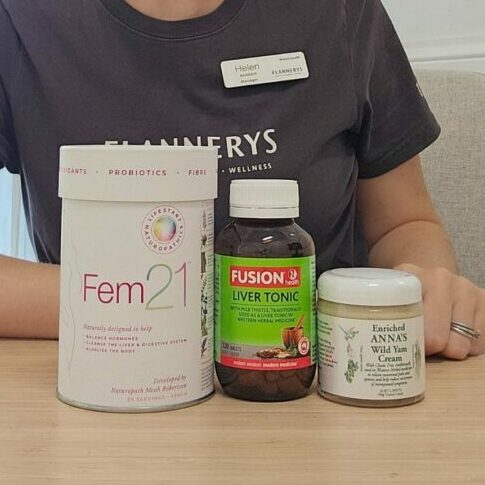
15.07.2018
This is why a daily multi can help you
By Alinda Boyd, Qualified Naturopath, Flannerys Organic & Wholefood Market, Robina
One of the most common questions encountered by the Flannery’s in store naturopaths and nutritionists is ‘do I need a multivitamin and what will it do for me?’ Whilst everyone is different, for a large percentage of our customers the answer will be yes. But who should take a multivitamin and why?
Multivitamins provide a comprehensive range of both vitamins and minerals that can support our energy levels, help with oxygen transport, provide antioxidant support, and can help to keep our immune system, nervous system and cardiovascular system healthy – just to name a few! With only 5% of Australian adults and children consuming the recommended daily intake of fruits and vegetables1, it is likely that many people may be missing out on these essential nutrients.
Certain people may be also be at an increased risk of vitamin and mineral deficiencies – these may include young children, adolescents, the elderly, pregnant and breastfeeding women, athletes, vegans or vegetarians, individuals on restrictive diets, people with chronic illness or people with digestive and malabsorption issues, and of course people consuming a poor diet.
But beware, not all multivitamins are created equal – speak to our qualified Flannerys staff about which multivitamin is best suited for your nutritional needs. Every Flannerys store carries a fantastic range of both over the counter and practitioner only multivitamins.
If tablets or capsules aren’t your thing, comprehensive superfood or green powders are a fantastic alternative for those who want to keep things closer to nature and opt for a multivitamin whole food powder. We love Nutra Organics Super Greens plus Reds and Morlife Alkalising Greens. For kids, Morlife Greens Kidz and Nutra Organics Vital Veggie Power are our top wholefoods multivitamin picks.
- National Health Survey: First Results, 2014-15. Australian Bureau of Statistics. Viewed 24 Jun 2018, http://www.abs.gov.au/ausstats/abs@.nsf/mf/4364.0.55.001
This article is for educational purposes only. Always seek health advice from your healthcare professional.
Share this post with your friends






